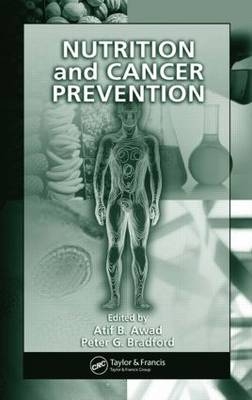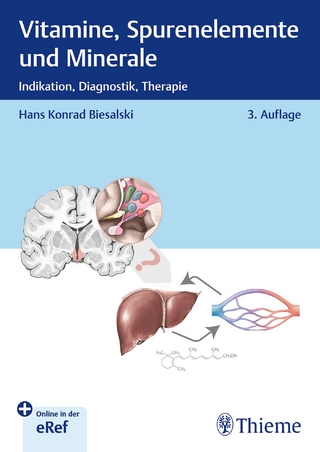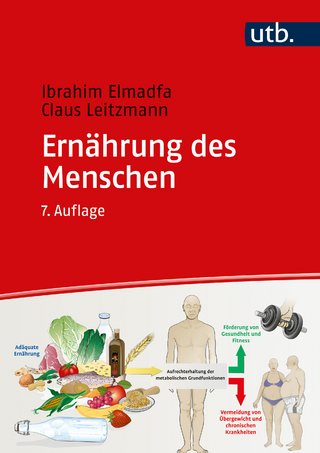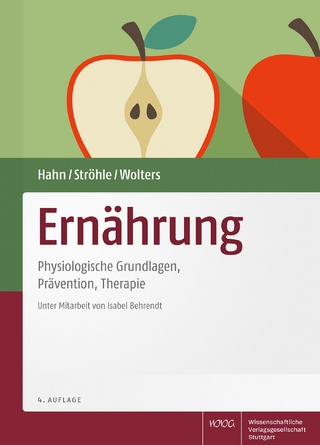
Nutrition and Cancer Prevention
Seiten
2005
Crc Press Inc (Verlag)
978-0-8493-3945-5 (ISBN)
Crc Press Inc (Verlag)
978-0-8493-3945-5 (ISBN)
Presents evidence that specific dietary micronutrients have the potential to play a role in resisting cancer, modulating its development, or reducing tumor metastasis. This book offers a descriptive epidemiology of the major cancers of the Western world.
Epidemiological studies have estimated that approximately 35 percent of cancers are potentially avoidable by nutritional modification. These modifications include strategies such as caloric restriction and limitation of specific macro-nutrient groups. However, recent research indicates that what you eat may well be just as important as what you shun when it comes to avoiding cancer, especially colon, breast, and prostate cancers, which have become epidemic in the Western hemisphere.
Nutrition and Cancer Prevention brings together the top experts in nutritive health who present significant evidence that specific dietary micronutrients have the potential to play a role in resisting cancer, modulating its development, or reducing tumor metastasis. As a way of introduction, the book updates the descriptive epidemiology of the major cancers of the Western world, and then discusses the likely mechanisms of action that occur when certain essential nutrients become diet staples. The text moves on to explore the scientific evidence, looking at the various properties of each class of micronutrient, chapter by chapter.
These classes include vitamins; minerals, particularly calcium and selenium; phytosterols and polyphenols, which are found in soy and green tea; isothiocyanates found in broccoli, kale, and other cruciferous vegetables; and specialized dietary lipids, including omega-3 fatty acids, linoleic acid, and sphingolipids. The book also dedicates chapters to the roles that obesity and excessive alcohol consumption play in cancer development.
“…we can hope to utilize nutritional interventions to slow the progression of tumor development in the intraepithelial hyperplasia phase before tumor size becomes large enough for diagnosis and probability of metastasis increases. Opportunity exists to stretch this prevention phase so that symptom-free life of the future patient with cancer is prolonged.”
--from Chapter 2, How Dietary Components Protect fro
Epidemiological studies have estimated that approximately 35 percent of cancers are potentially avoidable by nutritional modification. These modifications include strategies such as caloric restriction and limitation of specific macro-nutrient groups. However, recent research indicates that what you eat may well be just as important as what you shun when it comes to avoiding cancer, especially colon, breast, and prostate cancers, which have become epidemic in the Western hemisphere.
Nutrition and Cancer Prevention brings together the top experts in nutritive health who present significant evidence that specific dietary micronutrients have the potential to play a role in resisting cancer, modulating its development, or reducing tumor metastasis. As a way of introduction, the book updates the descriptive epidemiology of the major cancers of the Western world, and then discusses the likely mechanisms of action that occur when certain essential nutrients become diet staples. The text moves on to explore the scientific evidence, looking at the various properties of each class of micronutrient, chapter by chapter.
These classes include vitamins; minerals, particularly calcium and selenium; phytosterols and polyphenols, which are found in soy and green tea; isothiocyanates found in broccoli, kale, and other cruciferous vegetables; and specialized dietary lipids, including omega-3 fatty acids, linoleic acid, and sphingolipids. The book also dedicates chapters to the roles that obesity and excessive alcohol consumption play in cancer development.
“…we can hope to utilize nutritional interventions to slow the progression of tumor development in the intraepithelial hyperplasia phase before tumor size becomes large enough for diagnosis and probability of metastasis increases. Opportunity exists to stretch this prevention phase so that symptom-free life of the future patient with cancer is prolonged.”
--from Chapter 2, How Dietary Components Protect fro
Atif B. Awad, Peter G. Bradford
Introduction. Dietary Components that Protect from Cancer: Vitamins. Dietary Components that Protect from Cancer: Minerals. Dietary Components that Protect from Cancer: Phytosterols. Dietary Components that Protect from Cancer: Polyphenols. Dietary Components that Protect from Cancer: Isothiocyanates. Dietary Components that Protect from Cancer: Saponins., Dietary Components that Protect from Cancer: Specialized Lipids. Dietary Cancer Risk Factors.
| Erscheint lt. Verlag | 19.9.2005 |
|---|---|
| Verlagsort | Bosa Roca |
| Sprache | englisch |
| Maße | 152 x 229 mm |
| Gewicht | 952 g |
| Themenwelt | Medizin / Pharmazie ► Gesundheitsfachberufe ► Diätassistenz / Ernährungsberatung |
| Medizin / Pharmazie ► Medizinische Fachgebiete ► Onkologie | |
| Naturwissenschaften ► Biologie | |
| Technik ► Lebensmitteltechnologie | |
| ISBN-10 | 0-8493-3945-6 / 0849339456 |
| ISBN-13 | 978-0-8493-3945-5 / 9780849339455 |
| Zustand | Neuware |
| Haben Sie eine Frage zum Produkt? |
Mehr entdecken
aus dem Bereich
aus dem Bereich
Indikation, Diagnostik, Therapie
Buch (2024)
Thieme (Verlag)
80,00 €
Physiologische Grundlagen, Prävention, Therapie
Buch | Hardcover (2023)
Wissenschaftliche Verlagsgesellschaft
118,00 €


